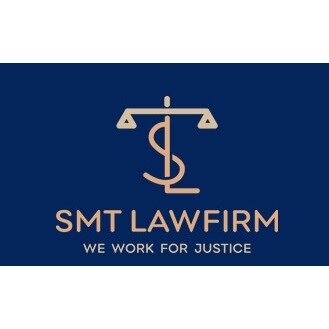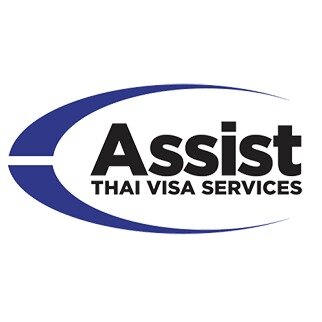Best Real Estate Due Diligence Lawyers in Chiang Mai
Share your needs with us, get contacted by law firms.
Free. Takes 2 min.
Free Guide to Hiring a Real Estate Lawyer
List of the best lawyers in Chiang Mai, Thailand
Legal guides written by SIAM LEGAL INTERNATIONAL:
- Defamation Laws in Thailand: Criminal Charges and Civil Suits
- The State of Thailand’s Long-Term Resident (LTR) Visa Program in 2025
- The Penalties Of Not Filing Your Income Tax Return As A Foreigner In Thailand
Thailand Real Estate Due Diligence Legal Questions answered by Lawyers
Browse our 2 legal questions about Real Estate Due Diligence in Thailand and read the lawyer answers, or ask your own questions for free.
- Selling my property in Krabi
- I'm the owner of a condominium in Krabi and have a ready foreign buyer. How can I get assistance to draft a sales contract between me and the buyer for a full sale without a property agent?
-
Lawyer answer by SB Law Asia
Our firm are experts in Thai property law and would be very pleased to assist you in this matter. Please feel free to contact us directly. The initial consultation is free.
Read full answer - Estate dealer Will not pay back.
- My Thai wife has paid money to an estate dealer for a land plot, the land should have been ready for overtaking, but due to different reasons it is not ready for overtaking, according to the contract, my wife should be able to get her money back, but the estate... Read more →
-
Lawyer answer by GPS Legal
GPS Legal has extensive experience in Real Estate Law, Contract Law, and dispute resolution in Thailand. If you choose to hire an attorney, please contact us directly
Read full answer
Thailand Real Estate Due Diligence Legal Articles
Browse our 9 legal articles about Real Estate Due Diligence in Thailand written by expert lawyers.
- 5 Common Legal Pitfalls in Thai Real Estate and How to Avoid Them
- Nestled within the paradisiacal landscapes and burgeoning economic dynamism of Thailand lies a high-stakes real estate market rife with both rapturous potential and formidable legal complexities. This idyllic Southeast Asian terrain has emerged as a globally-coveted destination for luxury residential developments, commercial property investments, and ambitious real estate endeavors spanning... Read more →
- How Foreigners Can Own Property in Thailand
- For foreigners considering property ownership in Thailand, understanding the process and relevant laws is crucial. These laws are not typically compared to the property ownership laws of other countries, as the Kingdom strictly regulates which foreigners can own property, the circumstances under which they can do so, and the types... Read more →
- Tax Implications of Buying Property in Thailand: A Comprehensive Guide
- You might be an expat in Thailand hunting for your next property investment, and interested in buying a condo in one of the world’s fastest-moving cities, Bangkok; or perhaps you’re an investor who is also in awe of the stunning and ever-popular vacation island of Phuket, or a retiree considering... Read more →
About Real Estate Due Diligence Law in Chiang Mai, Thailand
Real estate due diligence in Chiang Mai, Thailand, involves a comprehensive process of verifying and evaluating a property before finalizing any purchase or investment. This process can include checking the legal status of the property, understanding land ownership rights, and analyzing potential risks involved in the transaction. Due to its unique historical and cultural context, Chiang Mai's real estate market can present various challenges necessitating careful scrutiny and knowledge of local regulations. Engaging in thorough due diligence is crucial to ensure that your real estate dealings are legally sound and meet your financial and personal needs.
Why You May Need a Lawyer
Engaging a lawyer for real estate due diligence can be invaluable, especially in situations where you are unfamiliar with local laws or the intricacies of the real estate market in Chiang Mai. Common scenarios requiring legal assistance include assessing the legality of construction permits, verifying land titles, reviewing contractual terms of sale agreements, and negotiating with sellers. Additionally, language barriers and cultural differences may further complicate the process, making expert legal guidance essential to avoid potential pitfalls and costly mistakes.
Local Laws Overview
Thailand's property laws are complex and vary significantly from those in Western countries. In Chiang Mai, understanding the Land Code, laws regarding foreign ownership, and building regulations are particularly relevant. Foreigners generally cannot own land outright in Thailand; however, there are exceptions and alternative structures such as leaseholds or condominiums that offer more flexible ownership. Local zoning laws and environmental guidelines also play a significant role and can affect the viability of real estate developments. Due diligence in this context ensures compliance with all legal obligations and foresees any long-term restrictions or obligations.
Frequently Asked Questions
What does real estate due diligence involve?
Real estate due diligence involves investigating the legal status, financial viability, and physical condition of a property before committing to a purchase. It includes examining deeds, permits, zoning laws, and potential liens or encumbrances.
Can foreigners buy property in Chiang Mai?
While foreigners cannot own land directly, they may purchase buildings such as condominiums, or obtain long-term leases and make investments with certain legal structures, always adhering to Thai law.
What is the role of a lawyer in due diligence?
A lawyer assists in verifying the property's legal documentation, conducting title searches, facilitating negotiations, and ensuring the transaction complies with local laws and regulations.
How do I verify a property's title deed?
Verification involves checking the title deed at the Land Department to confirm ownership details, identify any encumbrances, and ensure the proper legal description of the property.
What are the risks of not conducting due diligence?
Failing to perform due diligence can result in legal disputes, financial loss, buying a property with zoning or building violations, or acquiring a property with title issues that could affect ownership.
What documents are essential for due diligence?
Key documents include the title deed, sales contract, zoning regulations, construction permits, and identification of any legal encumbrances on the property.
Is it necessary to conduct a property inspection?
Yes, a physical inspection is critical to assess the condition of the property, uncover any defects, and verify that the actual use of the land complies with legal records.
How long does the due diligence process take?
The length of due diligence varies depending on the complexity of the property and any issues discovered, typically ranging from a few weeks to several months.
What fees are involved in real estate due diligence?
Fees may include legal service costs, surveyor fees, land department registration fees, and other administrative expenses related to processing necessary documentation.
Who else might be involved in the due diligence process?
Besides lawyers, surveyors, property inspectors, local authorities, and financial advisors may be involved to ensure a comprehensive evaluation of the property.
Additional Resources
For further assistance, consider reaching out to the Land Department of Thailand, Chiang Mai's municipal offices, or real estate associations. Legal firms specializing in property law or international business can provide tailored advice and representation. It's also beneficial to consult with local real estate agents familiar with the Chiang Mai market.
Next Steps
If you need legal assistance with real estate due diligence, start by researching qualified local lawyers or firms in Chiang Mai with expertise in property law. Prepare any documents or questions you have and arrange consultations to discuss your specific needs and concerns. Understanding your rights and obligations under local law is crucial, so invest in comprehensive legal guidance to protect your interests in any real estate transaction.
Lawzana helps you find the best lawyers and law firms in Chiang Mai through a curated and pre-screened list of qualified legal professionals. Our platform offers rankings and detailed profiles of attorneys and law firms, allowing you to compare based on practice areas, including Real Estate Due Diligence, experience, and client feedback.
Each profile includes a description of the firm's areas of practice, client reviews, team members and partners, year of establishment, spoken languages, office locations, contact information, social media presence, and any published articles or resources. Most firms on our platform speak English and are experienced in both local and international legal matters.
Get a quote from top-rated law firms in Chiang Mai, Thailand — quickly, securely, and without unnecessary hassle.
Disclaimer:
The information provided on this page is for general informational purposes only and does not constitute legal advice. While we strive to ensure the accuracy and relevance of the content, legal information may change over time, and interpretations of the law can vary. You should always consult with a qualified legal professional for advice specific to your situation.
We disclaim all liability for actions taken or not taken based on the content of this page. If you believe any information is incorrect or outdated, please contact us, and we will review and update it where appropriate.















